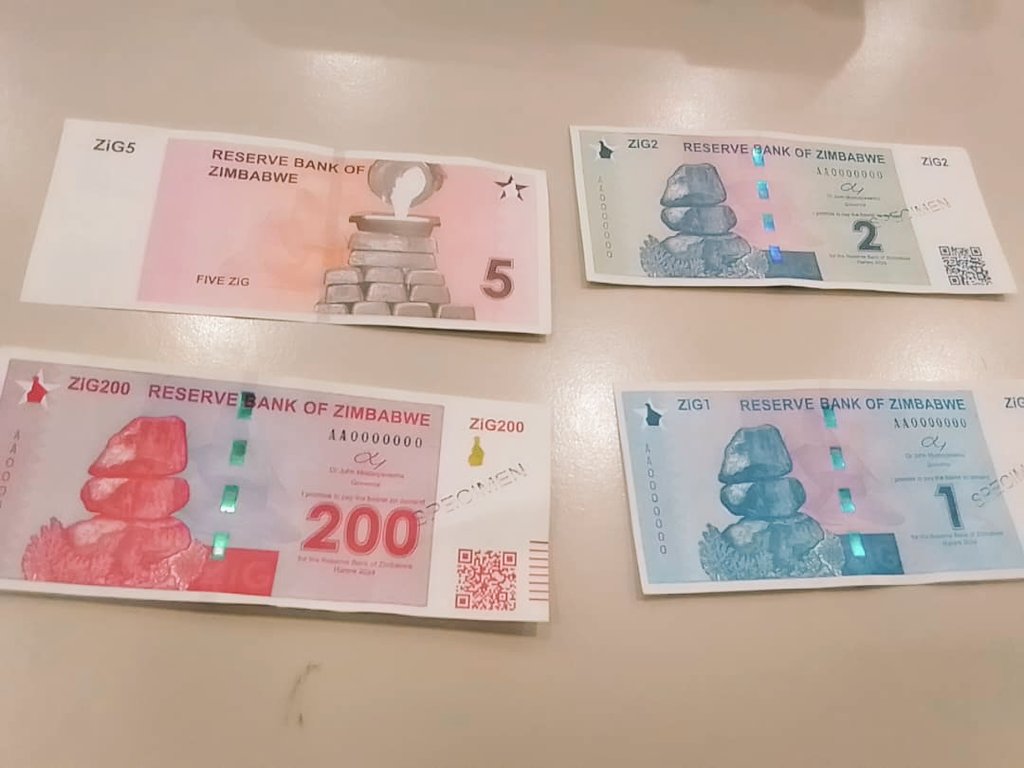A MONTH-LONG blitz by authorities to curb the parallel market for the country’s new gold-backed currency, the ZiG, is driving forex business off the streets and into banks.
This comes after the government imposed stiff fines for not doing transactions at the official exchange rate of the ZiG, which was introduced in April this year.
“The parallel market is not as loud and visible as it was before the latest blitz,” said Lawrence Nyazema, the president of the Banker’s Association of Zimbabwe. Lenders are seeing “an uptick in formal market activity,” he said.
Street dealers across the country have been forced to abandon their regular city-centre spots and have switched to using mobile phone messenger platforms to avoid detection.
Zimbabwe’s crackdown mirrors measures by other governments in the region where local currency depreciation has fanned inflation, stoking a cost of living crisis that has sometimes spilled into public unrest.
The Zimbabwe Gold is continuing to strengthen on the official market and was trading at 13,31 per US dollar yesterday — up 1,9percent from its launch price of 13,56.
The ZiG is backed by 2,5 tonnes of gold and US$100 million in foreign currency held at the Reserve Bank of Zimbabwe (RBZ), which has vowed not to print more ZiG notes than can be underpinned by the country’s reserves.
Printing money to finance government spending is what sabotaged previous efforts to launch a local currency, sparking sky-high inflation and collapsing values of the domestic unit against the greenback.
Speculation in the unofficial market contributed to volatility, with authorities taking aim at street traders for the demise of the Zimbabwe dollar, which the ZiG replaced on April 5. — Bloomberg



